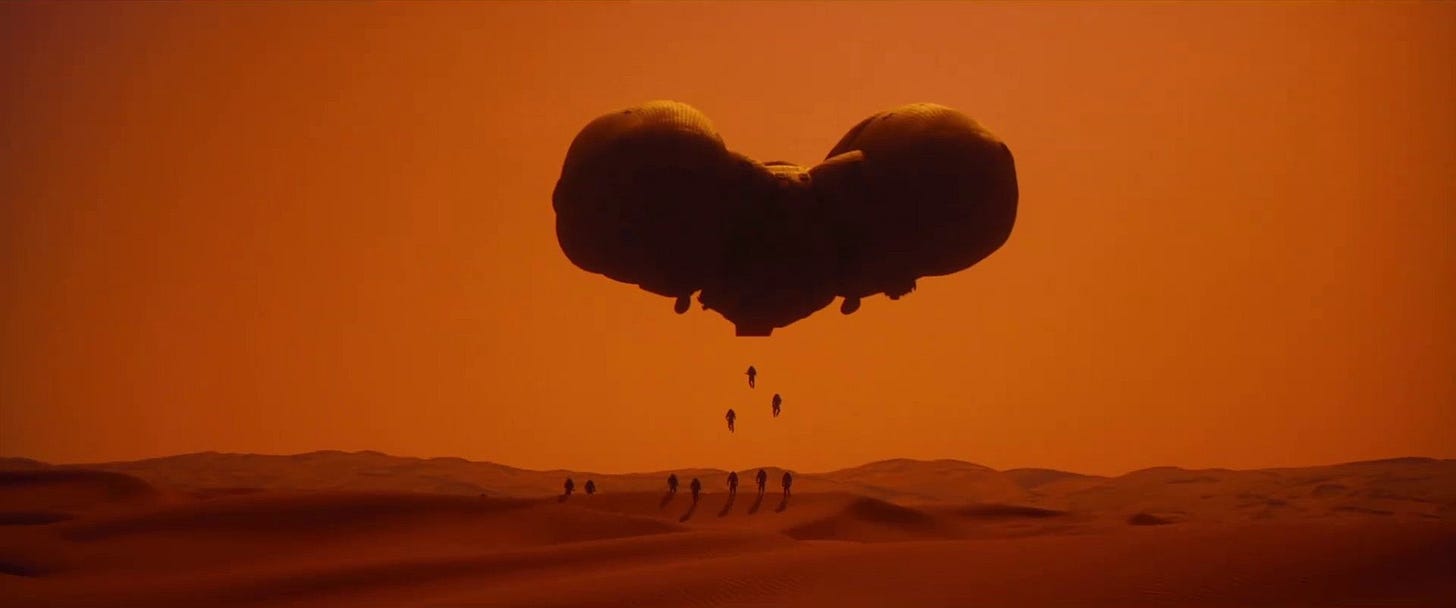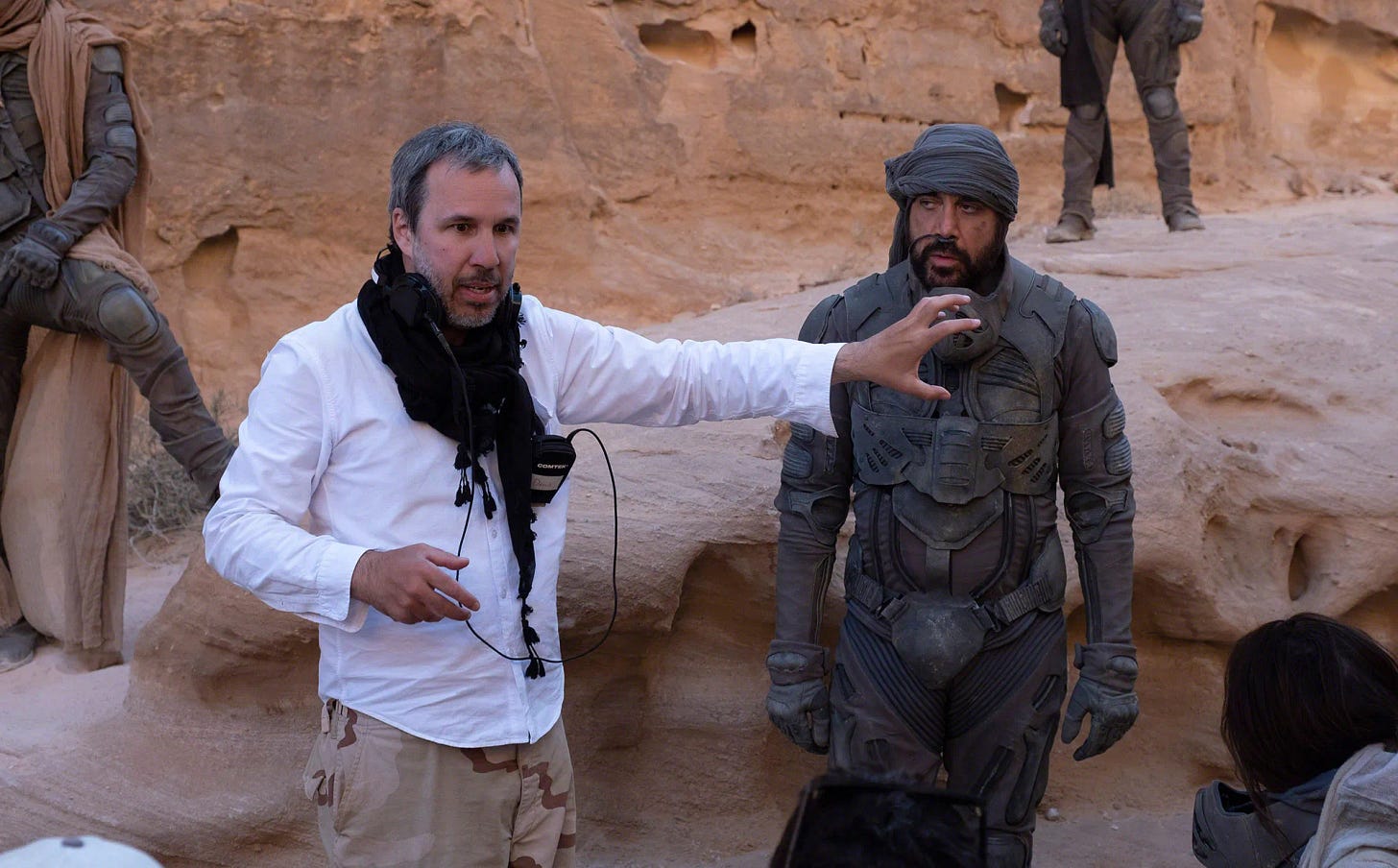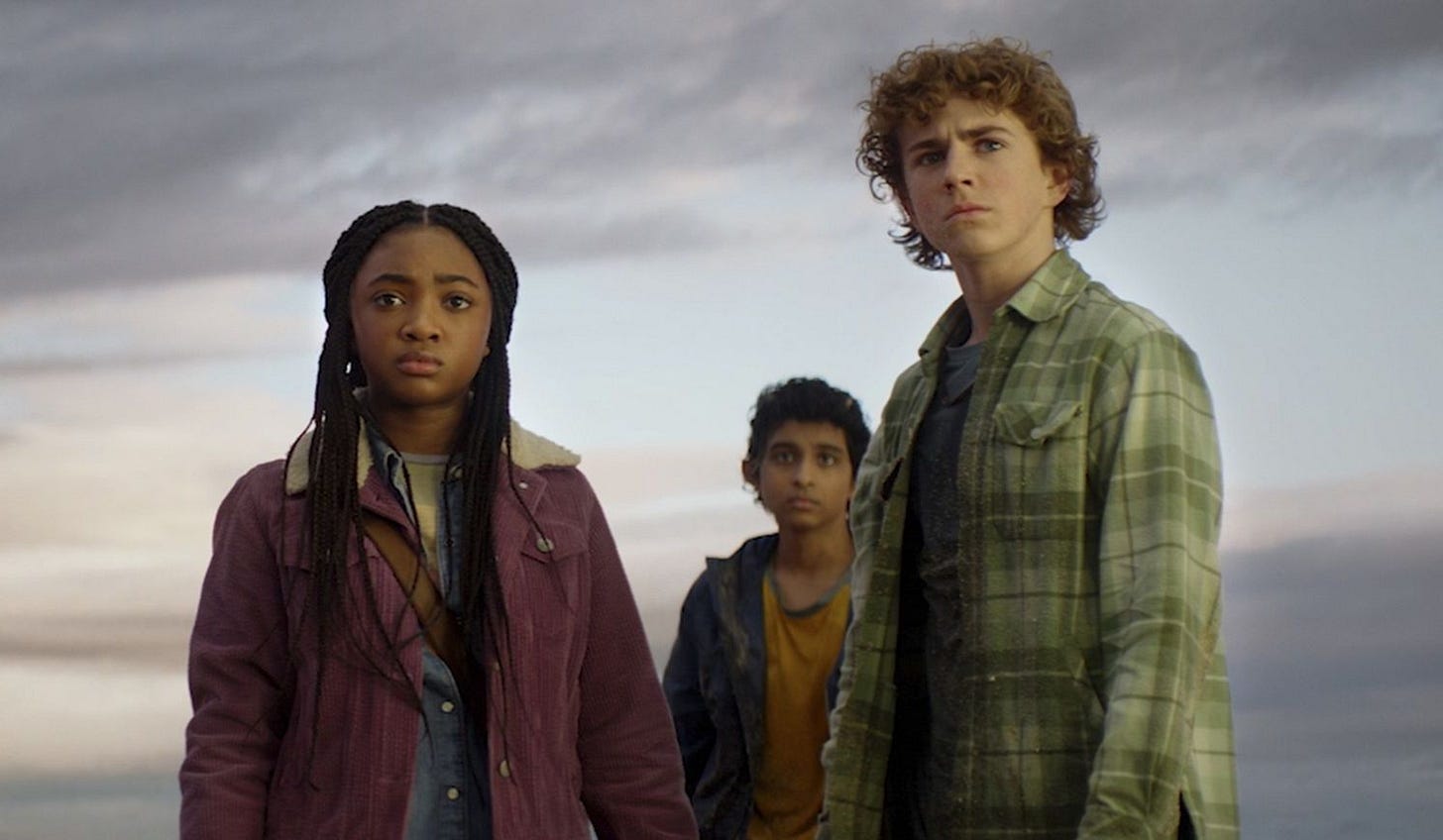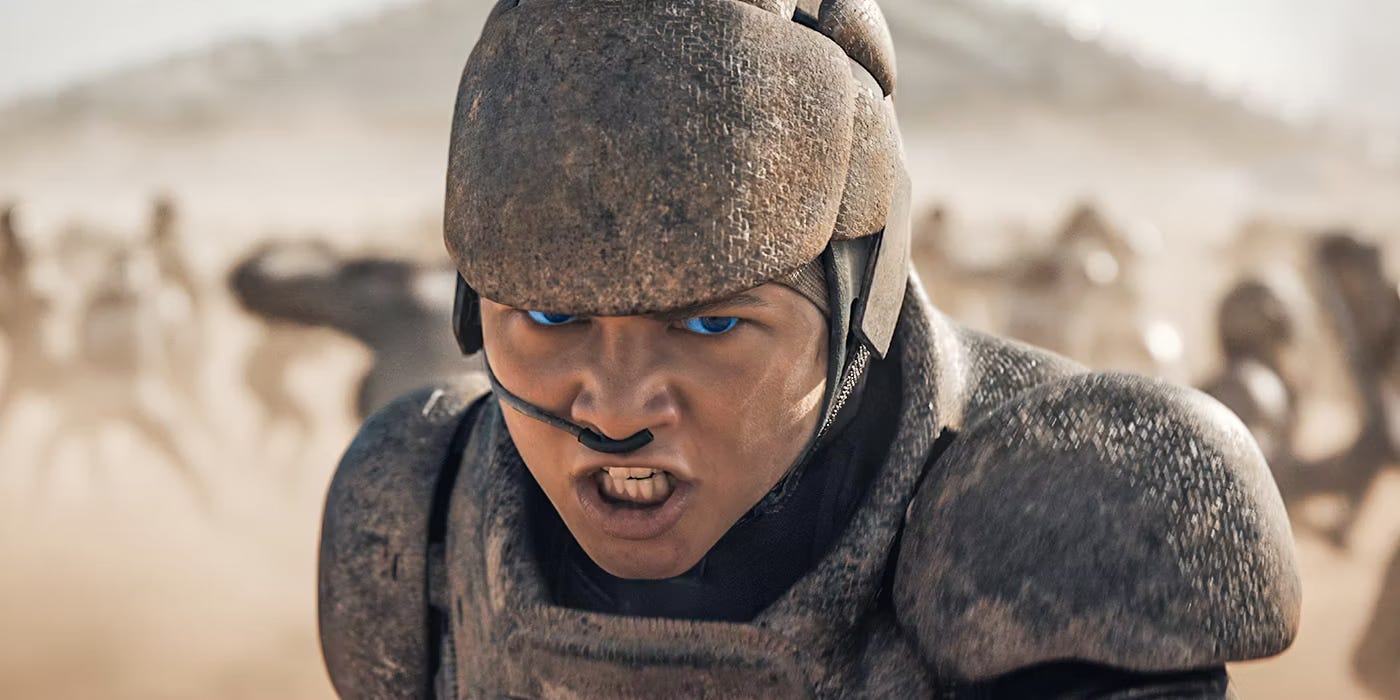The first post I ever drafted for this newsletter, almost 2.5 years ago now, was titled ‘Dune and the Promise of the Modern Blockbuster’. My idea for this post was the impetus for this entire newsletter.
My journey with DUNE has stretched for years and years now. I remember leaving Part 1 and just thinking I can’t believe I have to wait 2.5 years for the next one. Despite the (literally) countless rewatches of Part 1 over those years, it wasn’t until I was seated in the theater for Part 2 this past Sunday (and I heard that opening Sardaukar rumble: POWER OVER SPICE IS POWER OVER ALL) that I truly realized it was here.
DUNE 2 REVIEW
And thus, it’s here! DUNE: PART TWO is out in theaters everywhere! My review is short and sweet: go watch it on the biggest screen you can find. The comparisons people are making are apt – this is the Empire Strikes Back, The Two Towers, The Dark Knight of our time. It’s a monumental achievement. A thrilling blockbuster that’ll have you at the edge of your seat for every second. It’s an improvement on PART ONE in every possible way (and given my love for Part One, that’s high praise).
Rating: 10/10
I’ll stop there, because my typical spoiler-free review would just be me gushing over the movie for another 500 words, and no one wants to read that. Instead, I want to write about Denis Villeneuve’s work in adapting DUNE, one of the most influential science fiction novels ever, and one that by all accounts is unadaptable. I think Villeneuve’s adaptation of the book was masterfully done, and it offers a lot of interesting lessons in how we translate art from medium to medium.
ON ADAPTATION
A lot of people think of good adaptations as being defined by what the translator keeps the same. This is what makes a faithful adaptation. Accordingly, deviations from the source material are treated as aberrations, as betrayals. The job of the translator, especially from the perspective of fans of the source material, is to perform a 1:1 translation.
1:1 translation, though, is impossible. The same way language translators are forced to make decisions in their translations – which vocabulary to use, whether contexts carry over, conveying foreign ideas and structures – adaptors must do the same.
Take the new Percy Jackson show, for instance. It promised to be a more faithful adaptation of the book than the oft-maligned 2010 movie. With Rick Riordan more involved, and a streaming TV series format, they promised that each season would be a novel, and each episode would preserve as much detail as possible.
And what happened? In its quest for consistency, it lost out on what’s most important: its quality as a TV show. The Percy Jackson books are not good because of every single detail in the book; they’re good because of the epic adventure it brought to its readers. The Harry Potter movies miss out on heaps of details from the books, but it doesn’t matter: they maintain the sense of magic that draws readers to the books.
MEDIUM RARE
Canadian communication theorist Marshall McLuhan, in his essay "The Medium is the Message," argues that the form of a message determines how that message will be perceived. The scope of that argument is beyond this newsletter, but the fact remains different media are fundamentally different in how they convey ideas. Efforts to ignore this are what lead most adaptations to peril.
I argue that a good adaptation is defined not by what the creator keeps the same, but what they change. What betrayals do they make of their source material? And how do those betrayals culminate in a preservation of the original ideas and intent?
DENIS DUNE-NEUVE
Denis Villeneuve’s adaptation of DUNE is a masterful adaptation of its ideas. The changes he makes from the novel are nothing short of brilliant. Anyone who has read the book knows how much of it is told through internal monologue, through lengthy descriptions and expositions. Major scenes, like the battle of Arakeen and Paul’s first sandworm ride, are given mere sentences while entire chapters are devoted to a single thought Paul has. A faithful adaptation thus becomes a bad one.
Denis’ decisions about Chani’s and Jessica’s characters, in particular, are what bring this movie to life. Taking Book Paul’s internal monologue about the inevitability of the impending holy war and offloading it into a conscious choice on Jessica’s part (making her a steering hand towards evil) is a phenomenal choice. Making Chani the moral center of the film, the stand-in for the audience as we see Paul radicalize the rest of the Fremen, simultaneously brings her agency and makes clear Paul’s transformation (I think she’s the most important character in the movie).
All these things, and more, make DUNE 2 a great movie and a great adaptation. It seems like purist DUNE fans might bristle against these changes, but I’ve seen a lack of that response. Why? Because Denis gets the ideas right. He gets it. He has often called adaptation an act of betrayal, but to me, this is an act of love.
In making his movies different from the books, he succeeds in conveying what Frank Herbert always meant to get across to his readers. I think he’d be proud.
See you all again next week. Until then, please get in touch if you have any thoughts or suggestions you’d like to share. If you want to keep up with what I’m watching, follow me on Letterboxd @atharv_gupta.
Thanks for reading The Kino! Subscribe for free to receive new posts and support my work.










